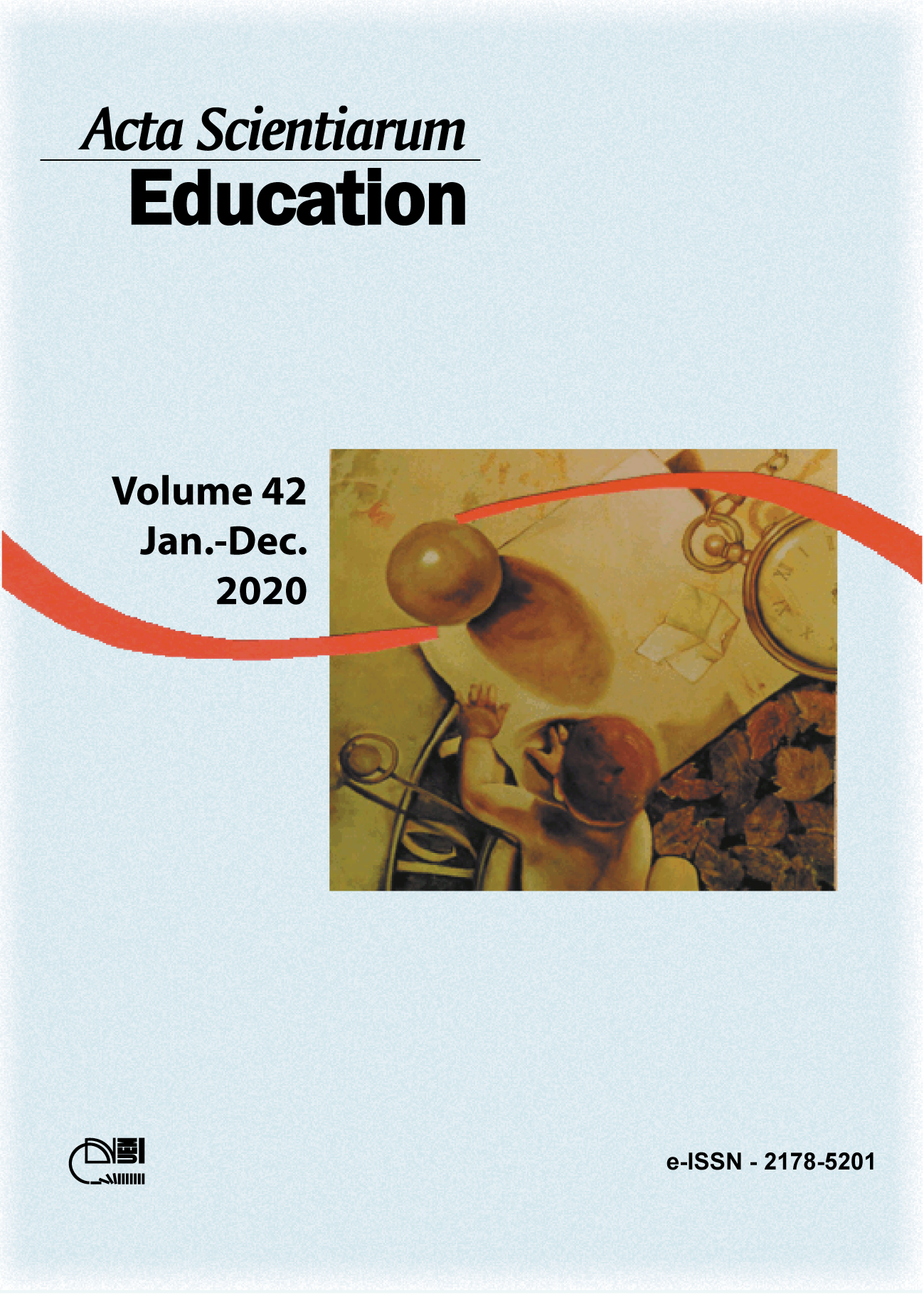Cartografando multiterritorialidades docentes e discentes na cibercultura
Chamada temática: Redes Educativas e os desafios atuais da Cibercultura
Resumo
O artigo tem como objetivo analisar as multiterritorialidades e os processos de conhecer de docentes e discentes do 9º ano do Ensino Fundamental, ao acessarem o território virtual. Os participantes do estudo pertencem a uma escola pública de uma cidade de médio porte de Minas Gerais, que funciona em tempo integral, e a fonte dos dados produzidos foi a entrevista narrativa. O aporte teórico são as contribuições de Rogério Haesbaert sobre território, de Gilles Deleuze e Félix Guattari sobre rizoma, em diálogo com autores(as) que se debruçam sobre as Tecnologias de Informação e Comunicação e suas relações com a educação. A análise mobiliza a cartografia como um dos princípios do rizoma e mapeia as apropriações do território virtual feitas por docentes e discentes, ao acessarem uma rede de interações rizomáticas na cibercultura. Os resultados indicam, na constituição das multiterritorialidades docentes e discentes, diferentes graus de vulnerabilidade informacional e diferentes processos de conhecer. Esses processos dizem respeito: aos conhecimentos sobre a tecnologia, à exploração de possibilidades de comunicação, à interação na produção e ao compartilhamento de conteúdos. As conclusões do estudo apontam para a importância do debate no campo da educação sobre os movimentos de ubiquidade que demarcam os processos de conhecer de docentes e discentes, para além das aprendizagens escolares, na proposição de reflexões sobre o acesso ao território virtual, marcado por um movimento identitário dos sujeitos, cujas experiências são tecidas em diferentes condições socioeconômicas e culturais.
Downloads
Referências
Alonso, K. M. (2008). Tecnologias da informação e comunicação e formação de professores: sobre rede e escolas. Educação & Sociedade, 29(104), 747-768. Doi: 10.1590/S0101-73302008000300006
Comitê Gestor da Internet no Brasil [CGI.BR]. (2019). Pesquisa sobre o uso da internet por crianças e adolescentes no Brasil: TIC kids online Brasil 2018. São Paulo, SP: CGI.BR. Recuperado de: https://cetic.br/media/docs/publicacoes/216370220191105/tic_kids_online_2018_livro_eletronico.pdf
Deleuze, G., & Guattari, F. (1995). Mil platôs: capitalismo e esquizofrenia (A. G. Neto & C. P. Costa, Trad.). São Paulo, SP: Editora 34.
Flick, U. (2013). Introdução à metodologia de pesquisa: um guia para iniciantes. Porto Alegre, RS: Penso Editora.
Gallo, S. (2008). Deleuze & a educação (2a ed.). Belo Horizonte, MG: Autêntica.
Gil, G. (1996). Pela internet [gravado por Gilberto Gil]. In Quanta [CD]. Rio de Janeiro, RJ: Warner Music Brazil.
Gil, G. (2018). Pela internet 2 [gravado por Gilberto Gil]. In Pela Internet 2 [EP]. Rio de Janeiro, RJ: GeGe. Produções Artísticas.
Haesbaert, R. (2007). Território e multiterritorialidade: um debate. GEOgrafia, IX(107), 19-45. Doi: 10.22409/GEOgraphia2007.v9i17.a13531
Haesbaert, R. (2011a). Concepções de território para entender a desterritorialização. In M. Santos et al. Território, territórios: ensaios sobre o ordenamento territorial (3a ed., p. 44-71). Rio de Janeiro, RJ: Lamparina.
Haesbaert, R. (2011b). O mito da desterritorialização: do ‘fim dos territórios’ à multiterritorialidade (6a ed.). Rio de Janeiro, RJ: Bertrand Brasil.
Kenski, V. M. (2008). Educação e tecnologias: o novo ritmo da informação (3a ed.). Campinas, SP: Papirus.
Lemos, A (2002). Cibercultura: tecnologia e vida social na cultura contemporânea. Porto Alegre, RS: Sulina.
Lévy, P. (1999). Cibercultura. São Paulo, SP: Editora 34.
Moran, J. M. (2013). Novas tecnologias e mediação pedagógica (21a ed.). Campinas, SP: Papirus.
Moran, J. (2015). Mudando a educação com metodologias ativas. In C. A. Souza, & O. E. T. Morales (Orgs.). Coleção Mídias Contemporâneas. Convergências midiáticas, educação e cidadania: aproximações jovens (p. 15-33). Ponta Grossa, PR: Proex/UEPG.
Santaella, L. (2007). Linguagens líquidas na era da mobilidade. São Paulo, SP: Paulus.
Santaella, L. (2010). A aprendizagem ubíqua substitui a educação formal? Revista de Computação e Tecnologia (ReCeT), 2(1), 17-22. ISSN 2176-7998
Santos, E. (2019). Pesquisa-formação na cibercultura. Teresina, PI: EDUFPI. Recuperado de: http://www.edmeasantos.pro.br/assets/livros/Livro%20PESQUISA-FORMA%C3%87%C3%83O%20NA%20CIBERCULTURA_E-BOOK.pdf
Silva, T. T. (2000). Teoria cultural e educação: um vocabulário crítico. Belo Horizonte, MG: Autêntica.
This work is licensed under a Creative Commons Attribution 4.0 International License.
DECLARAÇÃO DE ORIGINALIDADE E DIREITOS AUTORAIS
Declaro que o presente artigo é original, não tendo sido submetido à publicação em qualquer outro periódico nacional ou internacional, quer seja em parte ou em sua totalidade.
Os direitos autorais pertencem exclusivamente aos autores. Os direitos de licenciamento utilizados pelo periódico é a licença Creative Commons Attribution 4.0 (CC BY 4.0): são permitidos o compartilhamento (cópia e distribuição do material em qualquer suporte ou formato) e adaptação (remix, transformação e criação de material a partir do conteúdo assim licenciado para quaisquer fins, inclusive comerciais).
Recomenda-se a leitura desse link para maiores informações sobre o tema: fornecimento de créditos e referências de forma correta, entre outros detalhes cruciais para uso adequado do material licenciado.















































